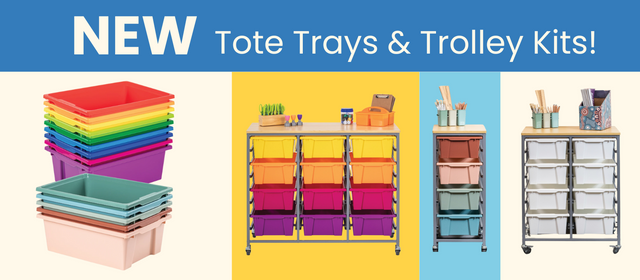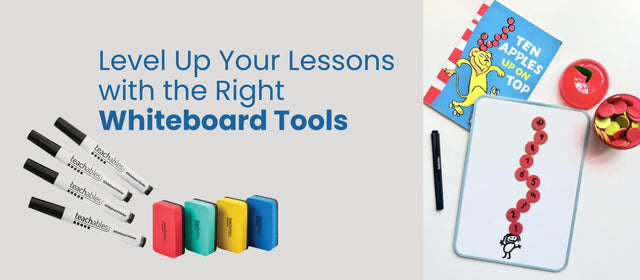Tips From A Numeracy Specialist
Posted by Deborah Holl on
The impact of not only a great teacher but also an engaging and organised classroom environment on our children is something that we all understand and have experienced on a personal level. If we are lucky we get to experience this more than once throughout our education and school can suddenly transform into an exciting, fun and interesting place that you can’t wait to get to everyday.
I have been very fortunate to meet many passionate teachers at the conferences I attend throughout the year for Elizabeth Richards and one of those teachers was Kris Graham. I sat down with Kris and discussed her philosophies, experience and advice over a coffee and came away feeling motivated and encouraged as I am sure Kris’s students can relate to. I told Kris this was my first interview for Elizabeth Richards and she was as you would expect very supportive and encouraging, like a true teacher.
At the time of this interview Kris Graham was the Acting K-2 Targeted Programs Advisor for the NSW DoE, and has been teaching since the late 80’s both here and in the UK. She is a former lead facilitator for the TEN (Targeted Early Numeracy) program and prior to that was the Assistant Principal of Wahroonga Public School. In 2015 I sat in on a TEN training session and it was a wonderful opportunity to listen to the professional conversation of teachers and I was inspired by the depth of knowledge and heights of enthusiasm not only from Kris but all the teachers in attendance.
Like most teachers Kris never really considered doing anything else. The passion for teaching was there from the beginning. In fact when I asked Kris what she would do if she had not chosen this path she struggled to picture herself anywhere other than involved in Education. To Kris teaching was in fact more than she ever thought it would be, far more complex, more diverse and at times draining, however deeply rewarding. As with most people looking from the outside in to a classroom you could be forgiven for thinking that it is all about the face-to-face teaching. But what I have learnt is the amount of work that is done outside the 9 - 3 school day is extensive, not to mention all that is done on weekends and during school holidays. Teaching is such a challenging career and Kris said that for her the most important characteristics any teacher needed was the love for a child and the desire to see them achieve their potential. As a teacher you need the desire to help and guide children with a deep understanding of their needs in the context of the curriculum and their individual pathway of learning.
As a numeracy specialist Kris explained that for a student to “get” maths and more importantly progress and enjoy it they first need to have a deeper understanding of number sense. And this is what TEN does, students see the logical pattern that numbers have in a fun and engaging way presented at their individual level. In a nutshell TEN is an initiative which recognises that there are a small percentage of students who are at risk of failing in the maths program run in a regular class. It is a way of monitoring these students and giving them instruction at their level and regular opportunity throughout the day to practice and develop their deeper number sense. The goal is to capture the students early in their education, and prevent the gap or Mathew effect from widening as they progress into Stage 2. The TEN initiative is derived from the original “Count Me In Too” research of the Learning Framework in Number, which has now developed into the NSW Numeracy Continuum to assist teachers monitor student’s progression. It’s a also a NSW government funded initiative for Teacher Professional Learning which provides shoulder-to- shoulder support and mentoring for teachers once they go back to their classrooms. The TEN initiative has been highly successfully and is now being adopted as good pedagogy and can of course be of benefit for all students and assist them in exceeding expectations. TEN encourages all classrooms to be aware of the variety of numeracy resources available and ensures they are easily accessible by all teachers and students. Better organisation reduces lost teaching time and frustration with more focus on the actual lesson. To achieve differentiation in the task at hand, the level of support required and the outcome expected, it is essential to have small organised sets of resources to support the activity of each group. Having the resources available in small quantities makes it easier for the student to avoid any confusion and complete their task as they have only what they need. Not only does this organisation reduce the amount of set-up time for each lesson, it also allows students to self-select and so increases the effectiveness of teaching numeracy activities. As most teachers know you can achieve a lot with a little, so the list of resources is by no means extensive.
In fact since starting TEN Kris says that her teaching of Mathematics has totally changed, she has a better understanding of how to use her resources to differentiate and that using the TEN initiative is a much more effective way to teach such an abstract subject.
For Kris the most rewarding moments as a teacher has been when she witnesses a student achieving their goals and getting to that next level. She has seen students who really struggle to reach their “ah ha” moment and when the connection is made there is a real sense of achievement for both student and teacher, she confessed to even shedding a tear or two. For those students who do have to work harder Kris feels the best way to keep them motivated is to make sure each small success is celebrated, giving you and them something to build on. Each child usually has a very keen sense of where they fit in the dynamics of the classroom and so you need to keep their own sense of achievement and esteem positive.
Finally I asked Kris what she has learned from any mistakes she has made during her years in the classroom. Kris replied that you need to accept that there is always more than one way to achieve an outcome. Sometimes the most well planned and most often used lesson just doesn’t always work. As a teacher you need to be flexible enough to make changes and know that there is always another way and another day.
Kris and her class.

Click HERE to view our full collection of numeracy resources

